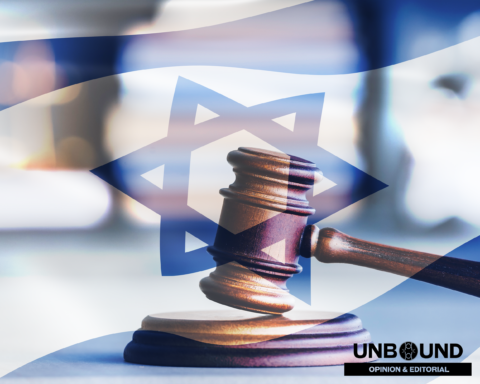Opening Editorial for an Advent and Christmas Issue on Middle East Struggles

Former President Jimmy Carter has recently made public that stage four melanoma is no longer present in his 91-year-old body. Thus he maintains as strong a pace as he can, a prescient productivity which by any measure has brought significant international benefit, and brought honor to the United States. He continues to teach Sunday School and lead The Carter Center, which wages peace by observing elections and mediating conflicts and also funds disease eradication and public health.
One of Carter’s greatest achievements was the Camp David peace treaty between Israel and Egypt, and he has named as one of his greatest regrets the fact that the “peace process” between Israel and the Palestinians has failed, repeatedly. Rather than complete that process, in fact, the United States has gotten involved in vastly tragic, de-stabilizing, and terrorism-producing wars throughout the region. Carter has kept up with the downward spiral of possibility for a two-state solution in Israel/Palestine, while also steadfastly favoring negotiation and serious diplomacy with both allies and enemies in other war zones
___________________________________________
One of Carter’s greatest achievements was the Camp David peace treaty between Israel and Egypt, and he has named as one of his greatest regrets the fact that the “peace process” between Israel and the Palestinians has failed, repeatedly.
___________________________________________
This issue of Unbound will examine both the Israel/Palestine struggle and the more overt violence in so much of the greater Middle East. As this is written, fear of suffering Syrian, Iraqi, and other Muslim and Arab refugees has prompted demagogic talk of restrictions and retaliation unworthy of our country’s values. Our approach will be use the biblical narrative—our fundamental (but not fundamentalist!) lens—to humanize suffering people and engage with the texts of judgment and promise that Christians hear during Advent and Christmas. Not all of the articles will use biblical images or figures from the Christmas story, and we will not replace commentaries on the passages. Rather we will suggest ways that the familiar and ancient texts exegete and suggest application to current yet unfamiliar struggles, drawing when possible on writers from the region.

So let us turn to a key passage in Luke’s birth narrative, which has the infant Jesus presented in the Temple in Jerusalem after his birth in Bethlehem (Luke 2:21-40). Simeon is introduced as a “righteous and devout” man who is waiting for the “consolation of Israel.” The texts from the prophet Isaiah that are woven into the passage define this consolation as return from exile and end of occupation combined in a messianic hope. The Holy Spirit has promised Simeon that he will not die before he sees Israel’s salvation, and the Spirit gets him to the Temple at the right moment when he can recognize and bless the holy infant. Whether or not Simeon taught Sabbath School, he quotes the great texts of God’s glory being seen in Israel and being a light to the Gentiles. It begs the obvious question: Will the righteous and devout Jimmy Carter live long enough to see some consolation for Israel that includes light for the Christian and Muslim Gentiles under Israeli control?
Having seen God’s deliverance in the baby Jesus, Simeon thanks God for fulfilling the promise to him. Even though the Roman occupation and oppression is still there, Simeon knows it is destined to end and states that God “dismiss(es) your servant in peace” (v. 29). Yet the story has Simeon continuing to speak prophetic words, directed mostly at Mary. In contrast to his claiming to see a salvation for all peoples in the redemption of Israel, and the fulfillment of his own role as watchman [1], he makes an oracular pronouncement about the division and opposition that will come to this child of destiny, “the falling and rising of many in Israel” (v. 34a). This judgment and painful revelation will not escape Mary: “And a sword will pierce your own heart too” (v. 35b).
___________________________________________
Will the righteous and devout Jimmy Carter live long enough to see some consolation for Israel that includes light for the Christian and Muslim Gentiles under Israeli control?
___________________________________________
Who cannot look at the situation in Israel and Palestine—perhaps Gaza especially—and then in Syria and Iraq and Yemen and Libya and all places where bombs are set or drones hit innocent bystanders—and not feel the swords that pierce mothers’ hearts? Who can read about the latest casualties and not feel that sword piercing our hearts as well? Can we forget Christians and other religious minorities targeted, tortured, beheaded, and enslaved? Can we deny the depth of alienation and rage that fuels suicide bombers? Can we doubt that terrorism is intended to produce distrust and conflict between Muslims and Christians—and Jews in occupied Palestine? Who benefits from the constant military option, the massive arms sales, the layers of surveillance and the structures of dispossession?

Photo: Public Domain
Carter’s book, Palestine: Peace Not Apartheid, names the challenge for Israel more starkly than most churches have. His book got almost as much opposition as John Mearsheimer and Stephen Walt’s The Israel Lobby and U.S. Foreign Policy. Carter’s support for Israel is unwavering, but so is his support for the Palestinians, and for them not to get an unworkable ‘consolation prize’. Hence his continued call for international agreements to be honored and for the US to play more of the role that he showed us to be capable of playing; that of pushing both sides, and not just favoring the more powerful.
It is a mistake, of course, to personalize any major struggle in one leader, or to listen to only one account of a given conflict. There are usually more than two sides, and many hidden interests. The 2014 General Assembly recognized this with Syria in calling it a “proxy war,” noting the role of very conservative Sunni Muslim states in seeking the destruction of a form of Shi’ism in the Assad regime. More aware of the tenacity of religious identity, the PC(USA) has been guided by Syrian Christians to understand the Alawites better than US foreign policy has, and to recognize the tragic reality that Assad’s regime is the better bet for Christians—without ignoring the cruelties on its record. What if the US had actually spoken and negotiated with Syria 10 years ago, when Assad was seeking to be a different man than his father?
___________________________________________
Who can read about the latest casualties and not feel that sword piercing our hearts as well?
___________________________________________

Photo Credit: Bryce Wilson
Among the articles we envision are a personal account of Christian-Muslim relationships in Iran, an analysis of the situation of Palestinian children held in detention, and a reflection on life in the shadow of occupation. No people can be demonized for the actions of their leaders, and prayerful insight must always guide our efforts to understand and support constructive efforts. No US taxpayer is untouched by responsibility for the militarization and destruction, especially in Iraq, Afghanistan, and Libya; our military and other support of the Saudis in particular has helped re-shape Islamic practice; and our largest recipients of foreign aid and diplomatic cover at the United Nations – Israel and Egypt in particular – do not provide full human rights for those under their control.
So even if we were not moved by faith to look for the broader salvation that is reconciliation of all enemies, we know that there will be division and opposition. Jimmy Carter has faced it, all prophets know it, and the story of Simeon gives us encouragement to watch and pray, even when we cannot do enough. May the articles we run help illuminate situations, deepen our faith, and provide encouragement for those with more determination than hope.
_______________________________________________________________
[1] The term, “watchman,” comes from The New Interpreter’s Bible, Vol. IX, p. 71. (Nashville: Abington, 1995).






Unbound Social